In that context, education and training need to be reshaped and change thinking to meet the requirements of the times. Human resource training and talent development will be directed towards each individual, promoting critical thinking, creativity and equipping global skills, in order to adapt effectively to a volatile and unpredictable world.
Two glorious eras of the nation
According to General Secretary To Lam, from 1930 to now, under the leadership of the Communist Party of Vietnam , the Vietnamese people have experienced two glorious eras. The first era is the era of independence, freedom, and building socialism (1930 - 1975), starting in 1930 when the Communist Party of Vietnam was born, leading to the great victory of the August Revolution in 1945 and great feats in the resistance wars against invaders (1946 - 1975) and important achievements in the cause of building socialism in the North in the years 1954 - 1975.
The second era is the era of national reunification, innovation and development (1975 - 2025), which began with the great victory of the resistance war against the invading American imperialists, unifying the country, bringing the whole country to socialism in 1975, creating a solid premise for the country, under the leadership of the Party, to carry out the innovation process starting from the 6th Party Congress in 1986, creating strong and comprehensive development in all fields.
Up to now, Vietnam has entered the third era, the era of national growth, which started with the 14th National Party Congress, marking 40 years of innovation (1986 - 2026). The era of growth implies creating a strong, decisive, resolute, positive, effortful, self-confident, self-reliant, self-reliant, and national pride movement to overcome challenges, surpass oneself, and realize the aspiration to reach a prosperous and happy country.
The era of national development goes hand in hand with the digital era, innovation and creativity, in which the common voice of humanity is "nothing is impossible". The Fourth Industrial Revolution and new technologies are and will disrupt the way of thinking, production and living of nations, communities and each individual.
The reality and requirements of rapid and sustainable development of the country require us to strongly innovate in thinking and awareness, create many breakthroughs, especially in institutions, science and technology , training high-quality human resources, attracting and promoting talents. Faced with this opportunity, education and training cannot lag behind reality, but must pioneer, lead the way, go one step ahead, create breakthroughs to train high-quality human resources, focusing on the following two directions.
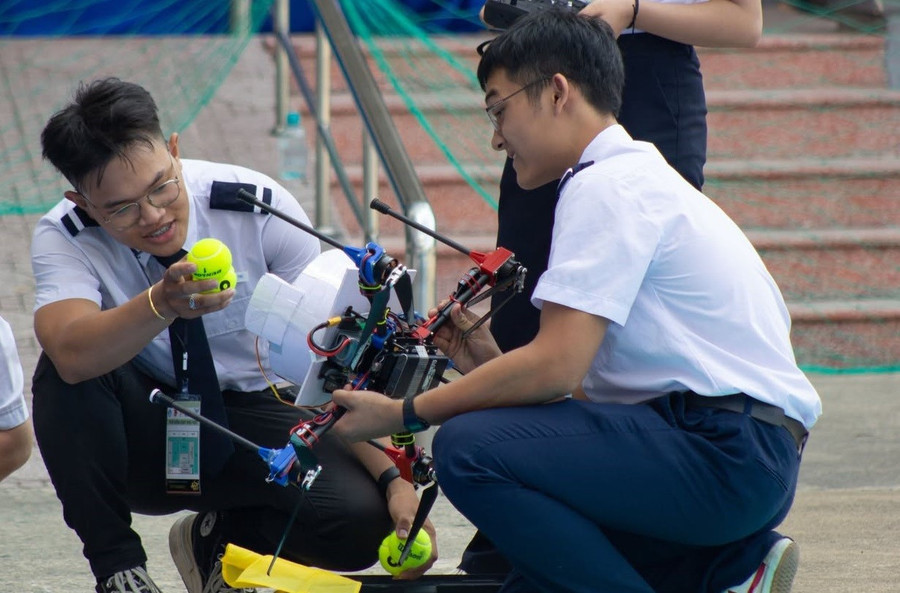
Comprehensive development of each individual learner
The country enters a new era, requiring the emergence of talented people in all areas of social life. Each person is a unique individual, with unique abilities and talents. However, human talents and talents, like natural resources, are not always easy to recognize. They are not located on the ground but hidden deep underground, in the sea, requiring investment in effort, intelligence and technology to be able to exploit.
Therefore, to discover the hidden potentials within each person, students need to be influenced by many methods, multi-dimensional and multi-directional solutions. Schools and teachers need to find appropriate ways to identify the differences in students, thereby responding and maximizing the abilities and talents of each student.
In general education, the comprehensive foundation is to help each student develop 5 core qualities: patriotism, compassion, diligence, honesty and responsibility. At the same time, students need to develop 10 competencies, including 3 general competencies: autonomy and self-study, communication and cooperation, problem-solving and creativity; and 7 specific competencies: mathematics, science, language, information technology, technology, physical fitness and aesthetics. This places special emphasis on critical thinking, creativity, the ability to accept change and learning from artificial intelligence (AI).
In addition, it is necessary to organize students to participate in experiential activities, attend intellectual playgrounds such as excellent student competitions, scientific research, art activities, sports, English speaking, and competitions such as Road to Olympia... These activities help to discover students' special abilities and capacities. In particular, it is necessary to prevent, gradually reduce and eventually end the widespread situation of extra teaching and learning, because this negatively affects the goal of fundamental and comprehensive educational innovation, especially students' self-study, self-research and self-development capacity.
In recent years, primary and secondary schools across the country have organized many activities, clubs, scientific research, and various intellectual playgrounds to discover talents. Many non-specialized students, especially in disadvantaged areas, still win high prizes in national and international competitions. In addition, training in specialized schools not only focuses on improving knowledge and skills in specialized subjects, but also aims at comprehensive development, focusing on personal capacity in solving practical problems.
These activities include scientific and technical research, the Road to Olympia competition, English speaking, practical projects, and creating opportunities for students to take on challenges earlier. Thanks to this, Vietnamese students have not only won high prizes in international Olympiads in Mathematics, Physics, Chemistry, Biology, and Information Technology, but also achieved excellent results in lower grades. Not only 12th graders, but also 10th and 11th graders have excelled in winning prizes.
For vocational and higher education, academic knowledge is no longer enough to meet the needs of the modern labor market. Training programs need to focus on equipping learners with 21st century skills, such as critical thinking, creativity, teamwork, adaptability to change, self-study, self-research, self-improvement and lifelong learning.
To do this, students not only learn in the classroom but also need to learn in many different environments, such as libraries, laboratories, in practice, through internships and work at businesses. Students also need to participate in national and international competitions, as well as be incubated with startups. It is through these experiences that students' talents can be discovered and maximized.
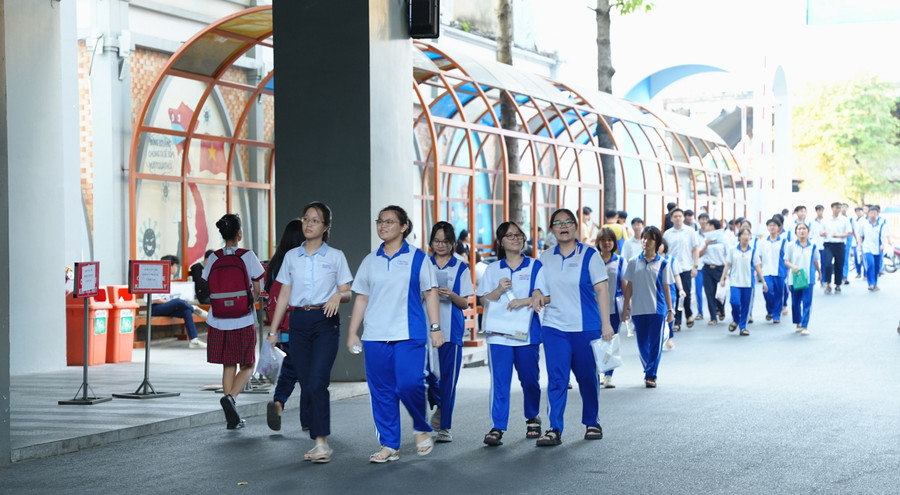
Focus on practical education
Pragmatism in education is not training people according to narrow pragmatism, but this characteristic is shown through the following three aspects.
Firstly, knowledge, skills, abilities and qualities must be truly useful to learners; knowledge must be closely linked to practice, minimizing theory and distance from reality. The 2018 General Education Program has followed this practical direction, reducing theoretical knowledge and increasing practice and experience.
The goal of the program is to help students master general knowledge, know how to effectively apply the knowledge and skills they have learned to life, self-study for life, have appropriate career orientation, build and develop harmonious social relationships, and at the same time develop personality, character and rich spiritual life, thereby having a meaningful life and making a positive contribution to the development of the country and humanity.
Second, the curriculum needs to be linked to local and national socio-economic issues, as well as issues that are happening on a global scale. Through daily practical activities, scientific research and problem solving, secondary school students will research and solve practical topics related to local, national and global life, such as climate change, artificial intelligence, robotics, and connecting people with technology.
Third, education and training must be linked to local and national human resource needs. In the new era, Vietnamese human resources need to be trained at a high level in the fields of science, technology, engineering, especially digital technology, digital engineering, artificial intelligence, semiconductors, nuclear, along with social sciences and humanities associated with digital technology.
Therefore, on the one hand, it is necessary to encourage students to study and take exams in natural sciences such as Mathematics and Technology to ensure human resource harmony, avoiding the situation where students choose social sciences because they are easy to study and take exams. Ho Chi Minh City is a leading locality in linking education and training with local human resource needs. The rate of students choosing natural science subjects to take exams is always higher than the national average. Specifically, in 2024, this rate in Ho Chi Minh City was 60.85%, while the national average was only 37%.
The era of national development goes hand in hand with the digital era, innovation and creativity. Therefore, educational institutions in general need to strongly implement smart education (GDTM) with four core issues.
Firstly , the goal of Vocational Education is to train a workforce that meets the requirements of the 4.0 Industrial Revolution and artificial intelligence. Secondly , learners are at the center, provided with modern learning services, suitable for each individual. Thirdly , smart nature includes flexibility, adaptability, modernity, continuous development and application of AI in teaching, learning and management. Fourthly, smart technology, including hardware, software and data, plays an important role in building and maintaining the Vocational Education environment. Education uses national and human big data for learning, and is also a place to create new data sources, contributing to national and human big data.
Smart education and digital education are the key to training high-quality human resources, thereby creating breakthroughs in science, technology and digital transformation. This breakthrough will impact education and training. These are two areas that the Party and State have identified as top national policies to bring our country firmly into a new era, an era of high development, prosperity and happiness for the nation.
On April 8, Permanent Deputy Prime Minister Nguyen Hoa Binh visited and worked at the Vietnam-Germany University (Binh Duong, now part of Ho Chi Minh City). Here, the Deputy Prime Minister said that entering a new era, realizing the growth and development goals, in addition to traditional growth drivers, we need to pay attention to promoting new growth drivers, including: Digital economy, circular economy, semiconductor chips, artificial intelligence, renewable energy, etc.
Source: https://giaoducthoidai.vn/dao-tao-nhan-luc-cho-ky-nguyen-moi-phat-trien-toan-dien-theo-ca-nhan-va-thuc-dung-hoa-gd-post741555.html



![[Photo] Cutting hills to make way for people to travel on route 14E that suffered landslides](https://vphoto.vietnam.vn/thumb/1200x675/vietnam/resource/IMAGE/2025/11/08/1762599969318_ndo_br_thiet-ke-chua-co-ten-2025-11-08t154639923-png.webp)






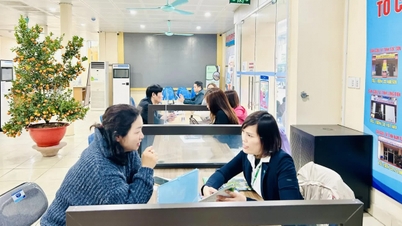

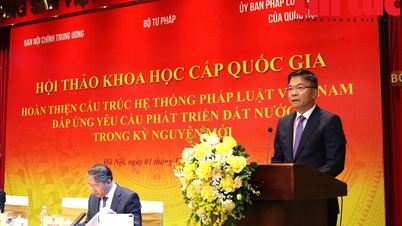

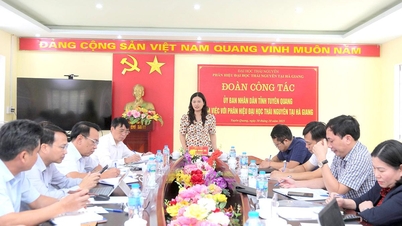



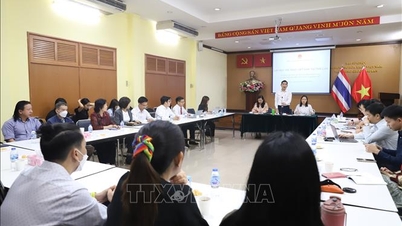


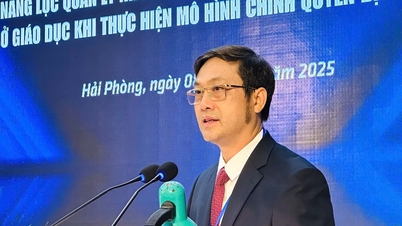

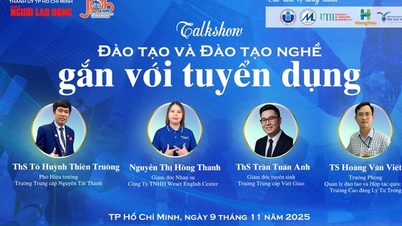









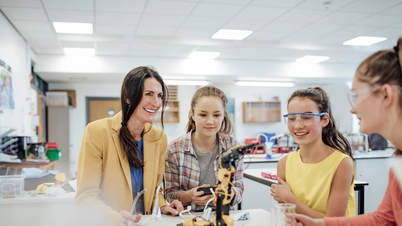
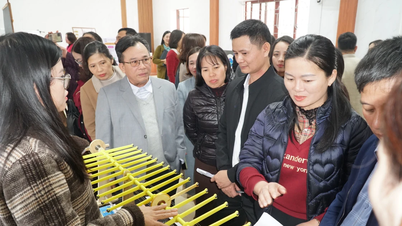


![[Photo] "Ship graveyard" on Xuan Dai Bay](https://vphoto.vietnam.vn/thumb/1200x675/vietnam/resource/IMAGE/2025/11/08/1762577162805_ndo_br_tb5-jpg.webp)





![[Video] Hue Monuments reopen to welcome visitors](https://vphoto.vietnam.vn/thumb/402x226/vietnam/resource/IMAGE/2025/11/05/1762301089171_dung01-05-43-09still013-jpg.webp)

































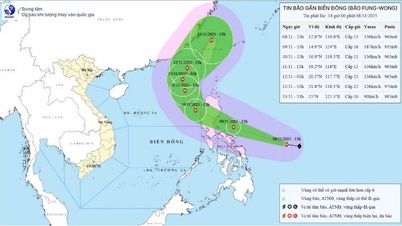


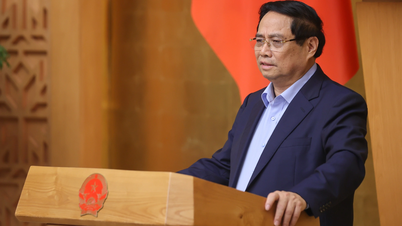








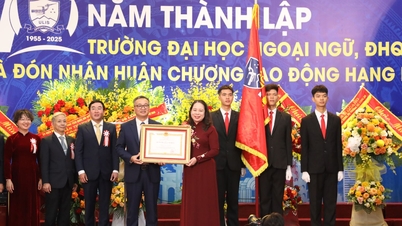



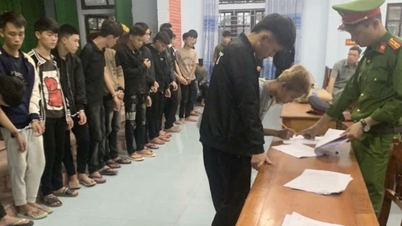

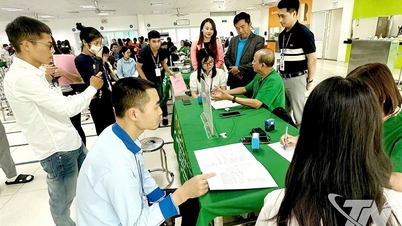

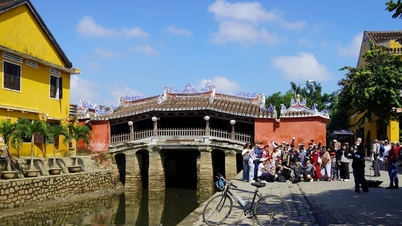















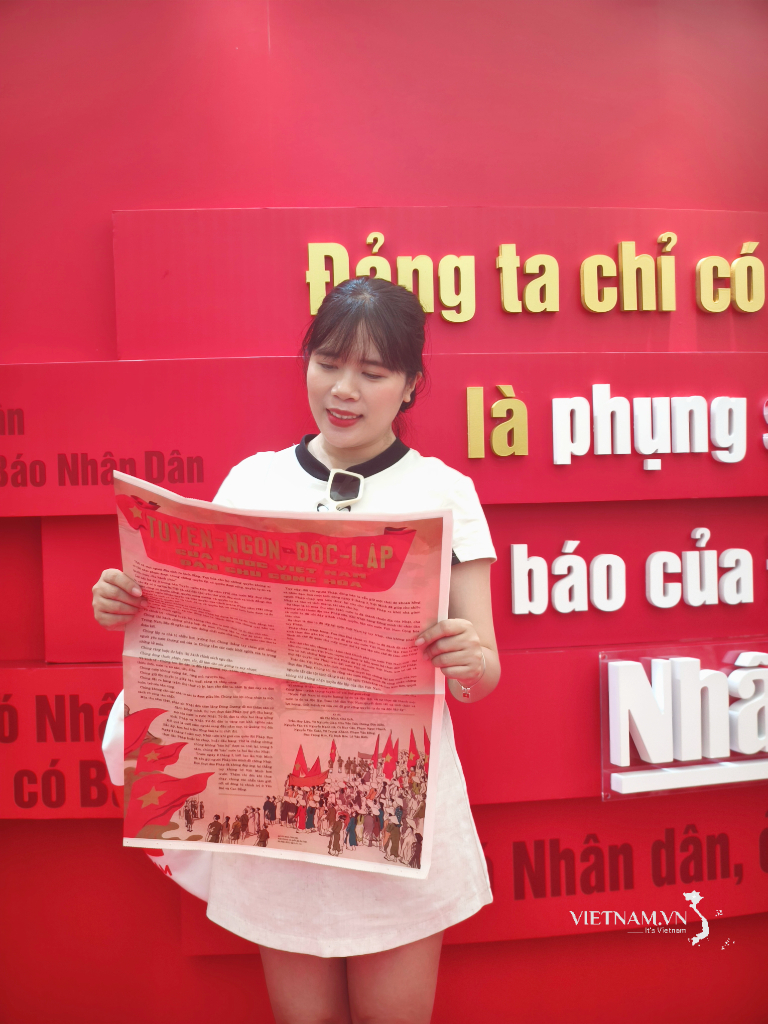

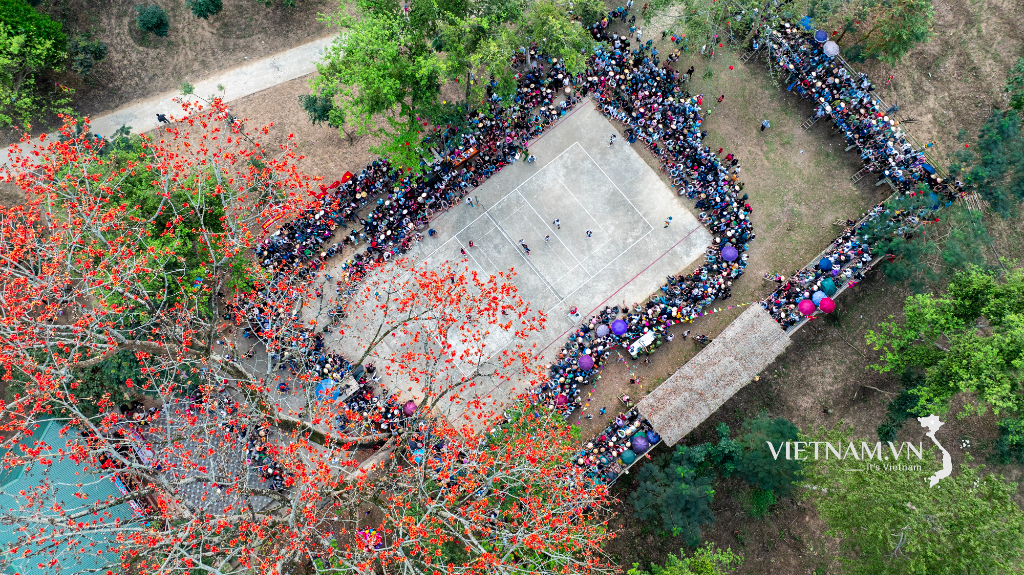
Comment (0)